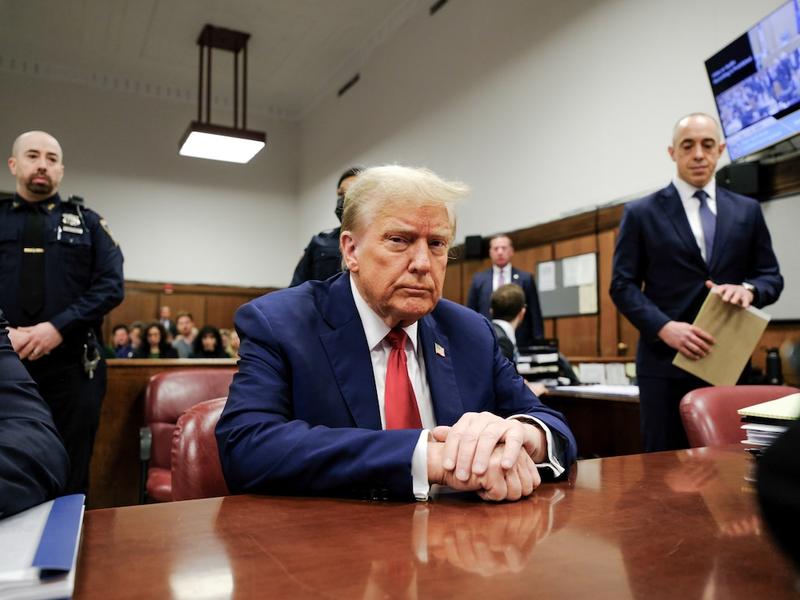
With “the” or at least “a” report from Special Counsel Robert Mueller reportedly expected next week, some are predicting bombshell revelations that could damage President Trump greatly, while others expect a nothing-burger, and still others aren’t sure.
While hardly a defender of the beleaguered president, I remain skeptical that whatever Mueller says or does next week will have a material effect on Trump’s base, but it could well be important to his reelection odds. Simply put, Trump has said or done any number of things since taking office that might be career-enders for any other politician, and yet have had little effect on his base support. When he said during the campaign that he could shoot someone on Fifth Avenue and his base would stick with him, it wasn’t that much of an exaggeration.
While most observers just look at overall approval and disapproval numbers in the polls, that really doesn’t define either a base or a core opposition. First, you should look at the proportions that strongly approve or disapprove of a president’s performance, ignoring those with more tepid reactions. In the most recent round of major polls that measure intensity, the lowest strong approval was the ABC News/Washington Post poll in January with 28 percent; the NBC News/Wall Street Journal survey pegged it at 29 percent, and the 2018 national exit poll had 31 percent, as did the February Fox News survey. Strong disapproves came in at 44 percent (Fox), 46 percent (exit poll), 47 percent (NBC/WSJ), and 49 percent (ABC/WP).
It seems that every pollster asks the reelect question in a different way, but the definite “vote for” or “vote to reelect” numbers generally run from as low as 23 to as high as 35 percent. Those who would “probably” vote Trump or “consider” voting Trump account for another 8 to 15 percent. The “definitely vote against” category ranges from as low as 39 percent to as high as 57 percent.
Sorting through it all, the strong approves and definitely-vote-fors for Trump seem to run around 35 percent; that’s his hard base, people who would vote for him, no matter what. Mueller, the economy, foreign policy events, impeachment, whatever—they are not listening, do not believe, or don’t care about any adverse news or accusations. Another 45 percent is equally adamant but in opposition; Trump could find a cure for both cancer and the common cold, achieve world peace for eternity, and end unemployment, but this group will vote against him no matter what.
That leaves the remaining 20 percent or so of the electorate in the middle, effectively up for grabs. This is the pivotal group that could be moved in either direction by developments around the president and/or the Democratic nominee, the economy, or other factors.
Trump won the presidency by carrying 30 states that total 306 electoral votes (though two electors cast their ballots for someone else). The election turned on Trump margins of seven-tenths of a point in Pennsylvania and Wisconsin, and two-tenths of a percent in Michigan. He lost the national popular vote to Hillary Clinton by a touch over 2 points, 46 to 48 percent. While no two elections have precisely the same dynamics, if 2 percentage points were not quite enough for Democrats to win the 270 electoral votes necessary for victory, let’s say that a Democrat needs to win the national vote by 3 points to be reasonably confident of a win. (Keep in mind that the last time there was as big a disparity in the popular and electoral votes was 140 years earlier, when Samuel Tilden won the popular vote while Rutherford B. Hayes prevailed in the Electoral College. But let’s just go with 3 points for this back-of-the-envelope analysis.)
Starting off with a base of 35 percent, Trump would need to win at least two-thirds of that 20 percent that is up for grabs in order to get within 3 points of a Democratic opponent and have any realistic chance of winning. That’s a pretty tall order and is likely to hinge on what extent that fifth of the electorate is suffering from Trump fatigue and whether Democrats nominate someone more appealing, or at least more acceptable than the incumbent. That is the group worth watching; those are the people that might be affected one way or another by the big events of the next 20 months—starting with Mueller.
This story was originally published on nationaljournal.com on February 22, 2019










Subscribe Today
Our subscribers have first access to individual race pages for each House, Senate and Governors race, which will include race ratings (each race is rated on a seven-point scale) and a narrative analysis pertaining to that race.